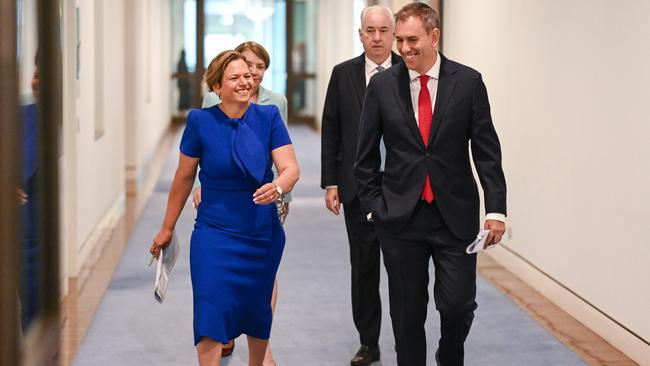
This bipartisan support, highlighted in a survey of major parties and independents conducted by the Public Interest Journalism Initiative, and in recent televised leaders’ debates, underscores the critical role of public interest journalism in our democracy.
During the debates, both Anthony Albanese and Peter Dutton reaffirmed their support for the media bargaining code.
Albanese emphasised the necessity of protecting local media from the overwhelming dominance of global tech giants while Dutton echoed the sentiment, stressing the importance of a fair playing field for Australian news providers.
This is, hopefully, a promising sign that the next parliament will continue to prioritise the sustainability of public interest journalism.
The media bargaining code, introduced in 2021, has been a pivotal step in ensuring tech giants like Google and Meta compensate Australian news organisations for their content. This policy has provided much-needed financial support to larger media entities, but it is crucial we extend these benefits to smaller, regional outlets that are the lifeblood of local communities.
In addition to the media bargaining code, the recently introduced media incentive legislation represents a significant step forward in ensuring the financial viability of Australian journalism.
Announced in December 2024, this legislation aims to incentivise large digital platforms to support Australian news and journalism by imposing a levy on those platforms. The levy applies to entities operating significant social media or search services with annual revenues exceeding $250m attributable to Australian markets.
The media incentive legislation is designed to encourage digital platforms to enter or renew commercial agreements with news publishers. By offering a non-refundable offset for eligible expenditures supporting journalism, the legislation provides a financial incentive for platforms to invest in the sustainability of news content.
This approach addresses the limitations of the 2021 news media bargaining code, which allowed platforms to circumvent obligations by simply removing news content.

Passing this legislation is crucial for several reasons. Firstly, it ensures digital platforms contribute fairly to the industries from which they profit. The levy and offset mechanism create a financial environment where supporting journalism becomes a more attractive option for these platforms.
Secondly, it provides a more stable and predictable source of funding for news organisations, particularly those in regional areas that have been hardest hit by the decline in advertising revenues.
PIJI’s research has consistently highlighted the precarious state of regional journalism. Our Australian News Data Project reveals that many regional newspapers have either closed or significantly reduced their operations due to declining advertising revenues and the economic impacts of the Covid-19 pandemic. This decline has left many communities without a reliable source of local news, undermining the democratic process at the grassroots level.
To address this, we must explore additional funding models that can complement the media bargaining code. One such model is the implementation of a tax rebate for public interest journalism, as recommended in PIJI’s submission to the Regional Newspapers Inquiry. This rebate would incentivise private investment in journalism and provide a more stable financial foundation for news organisations.
Transparency and accountability are paramount in any funding model. It is essential any financial support for journalism is tied directly to public interest outcomes.
This means ensuring that funds are used to produce high-quality, independent journalism that serves the public good. Additionally, we must maintain rigorous oversight to prevent misuse of funds and to guarantee that the benefits reach the intended recipients, particularly in regional areas.
The importance of public interest journalism cannot be overstated. It plays a vital role in holding power to account, informing citizens, and fostering a well-functioning democracy.
In regional Australia, local newspapers are often the only source of news about local government, community events, and issues that directly affect residents’ lives.
Without these outlets, communities are left in the dark, and the democratic process is weakened.
Moreover, public interest journalism contributes to social cohesion by providing a platform for diverse voices and perspectives. It helps to bridge the gap between different segments of society and promotes a more informed and engaged citizenry.
In an era of increasing misinformation and polarisation, the role of trusted, independent journalism is more critical than ever.
The media bargaining code has laid a strong foundation, but we must build on this progress. The next parliament has a responsibility to ensure that public interest journalism remains viable and vibrant. This includes not only maintaining the media bargaining code but also exploring innovative funding models and ensuring transparency and accountability in the allocation of resources.
As we look to the future, it is imperative that we continue to support and sustain this vital institution. The commitment shown by our political leaders is a positive step, but we must remain vigilant and proactive in our efforts to ensure that public interest journalism thrives in every corner of Australia.
Allan Fels is the chair of the Public Interest Journalism Initiative







I was heartened by the ongoing commitment to the media bargaining code expressed by major political parties and members of the crossbench during the election campaign.